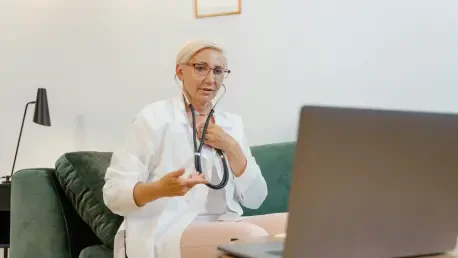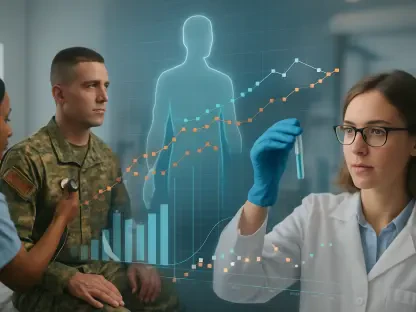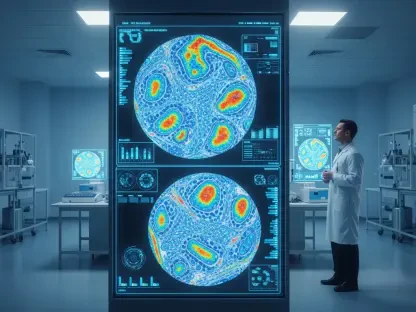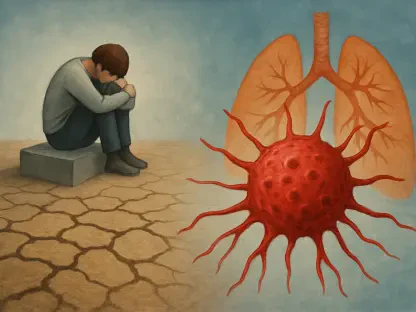The healthcare landscape is being reshaped by telehealth, an innovation that is transforming the delivery of care, particularly at the McGill University Health Centre (MUHC). This transformation is evident with the institution’s initiative to integrate telehealth services deeply into their healthcare strategies. By appointing two new ambassadors, Dr. Aurore Côté and Virginia Allen, MUHC aims to bolster its expertise and outreach in telehealth. These ambassadors are not only working to expand telehealth practices but are fostering a culture of peer support and knowledge sharing among clinicians. Telehealth clinics at MUHC, especially in dermatology and allergology, offer significant advantages, particularly for individuals residing in remote communities. Such integration allows healthcare providers to deliver high-quality care effectively through virtual platforms, ultimately reducing the need for physical travel and increasing accessibility to expert medical opinions.
Expanding Telehealth Access and Expertise
The successful incorporation of telehealth services at MUHC underlines a broader trend transforming not just individual practices but the entire healthcare delivery model. Dr. Aurore Côté has been instrumental in incorporating telehealth into her practice, making healthcare more convenient for specific patient groups, particularly adolescents. These young patients benefit immensely by not having to miss school while accessing healthcare services, thus saving time and minimizing disruptions to their daily lives. This is just one aspect of how telehealth transforms healthcare accessibility. The MUHC Telehealth Ambassadors Program plays a critical role in advancing these efforts, urging the implementation and growth of telehealth services across various specialties. This initiative supports peer-to-peer learning and the dissemination of best practices among medical staff, leading to a continuous increase in the quality and reach of telehealth consultations.
This strategic expansion has resulted in an 18% increase in telehealth consultations at MUHC, reflecting a noticeable shift toward remote modes of healthcare delivery. The program has catalyzed a broader trend in healthcare, with over 10% growth in long-distance consultations across more than 70% of specialties compared to the previous year. Notably, telehealth clinics specializing in dermatology and allergology have demonstrated exceptional success. By utilizing high-resolution digital imagery, dermatologists can diagnose and assess skin issues accurately without necessitating patient travel. This capacity to deliver specialized care remotely significantly enhances access for patients in remote areas or those with mobility challenges. The emphasis on telehealth, therefore, serves a dual purpose: providing personalized healthcare that aligns with patient needs while also solving logistical barriers that have long hindered effective care delivery across distances.
Emphasizing Interdisciplinary Collaboration and Education
Telehealth’s transformative potential does not stop at merely providing remote consultations; it extends into fostering interdisciplinary collaboration and enhancing continuous education within the medical community. The utilization of telehealth technologies to conduct Tumour Board discussions exemplifies how MUHC is extending these capabilities into the realm of medical education and collaborative care. This method allows specialists from different fields to convene virtually, offering a platform for collaborative decision-making and comprehensive patient management. By doing so, telehealth promotes a more integrated and cohesive healthcare approach, aligning specialist knowledge with patient-centered care solutions.
Furthermore, MUHC’s commitment to tele-education highlights an evolution toward digital learning for both patients and healthcare providers. Patients benefit from virtual instructions that enhance their understanding and management of their medical conditions, empowering them with knowledge and fostering proactive health management. Simultaneously, healthcare professionals gain access to cutting-edge educational resources and collaborative learning environments, enhancing their skills and staying informed on the latest medical advancements. Together, these initiatives underscore the powerful impact of telehealth in revolutionizing the field, transforming it from a reactive to a proactive, patient-centered paradigm that seamlessly integrates care delivery with educational outreach.
Shaping the Future of Healthcare Delivery
The integration of telehealth at MUHC showcases a significant shift in healthcare delivery models, transcending individual practices to transform the broader system. Led by Dr. Aurore Côté, telehealth in her practice has made healthcare services more accessible and convenient, especially for adolescents who benefit by not missing school. They can access medical care without disrupting their daily routines. This exemplifies telehealth’s role in enhancing healthcare accessibility. The MUHC Telehealth Ambassadors Program is pivotal in promoting telehealth expansion across specialties, fostering peer-to-peer learning and sharing of best practices among staff. The program has driven an 18% rise in telehealth consultations at MUHC, highlighting the shift towards remote healthcare. In dermatology and allergology, telehealth’s use of high-resolution digital imagery allows precise diagnosis without patient travel, boosting access for those with mobility issues or in remote areas. Telehealth thus meets patient needs while solving logistical issues in care delivery over long distances.









